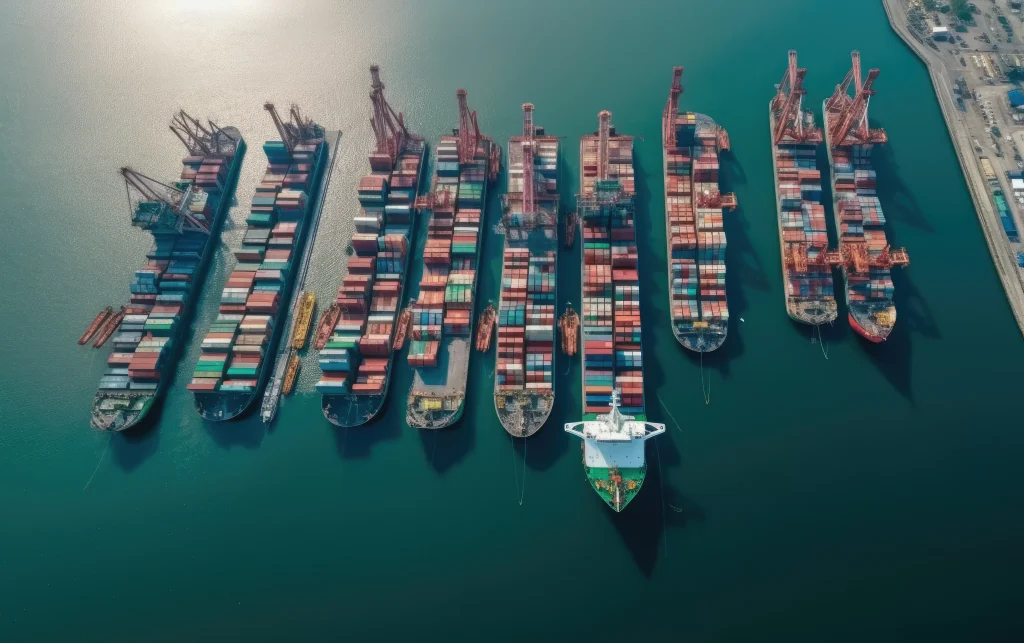How is the progress of your shipment planning? Are you able to access the latest vessel schedules? How do you handle any delays in vessel arrivals? Do you believe there is room for improvement when it comes to your shipment planning?
Ever-changing vessel schedules that lead to constant disruptions
The constantly changing schedules of many vessels pose challenges for importers and exporters in the shipping industry each year. Managing these endless changes and delays can be both demanding and costly for stakeholders in the supply chain.
As a result, having access to the most up-to-date vessel schedules is probably the most important competitive edge you can give yourself over other freight forwarders in a market where there are numerous external factors at play – and after all, who doesn’t want a competitive edge for their business?
Let’s explore the benefits and drawbacks of importers and exporters having access (or the lack thereof) to the latest vessel schedules to understand where the true value lies in using up-to-date timetables.
Importance of vessel schedules for exporters
Having access to the most recent vessel schedules is important for exporters due to the following reasons:
- Relying on outdated vessel schedules can lead to incorrect reservations, causing disruptions. Every time a timetable is modified, truckers must be informed.
- Exporters may overlook timetable modifications, resulting in cargo arriving at the port earlier or leaving later than planned. This can lead to demurrage charges and financial losses.
- Schedule adjustments that cause ships to depart earlier than initially planned can create difficulties for exporters in meeting crucial deadlines. Delays in cargo delivery can adversely impact business operations.
- Exporters lacking access to cutoff dates might encounter certain challenges. Having access to container yard cutoff dates and document cutoff dates provided by Schedules allows exporters to stay in control of their cargo, ensuring precise scheduling for its timely arrival at the terminal. This ultimately helps exporters avoid extra storage fees at the port and, naturally, ensures that the containers are included in the vessel’s manifest and loaded as planned.
When a timetable deviates from its original plan, the route’s reliability also drops significantly. In an industry where risk mitigation and downstream cost reduction are vital, unreliable routes present challenges in managing the supply chain effectively.
Schedules plays a crucial role in addressing the above-mentioned exporter tasks of avoiding incorrect reservations, minimizing financial losses, and missing important deadlines. With Vessel Schedules, you can get actionable insights and make informed decisions about your shipments.
Importance of vessel schedules for importers
Having access to the latest vessel schedules also holds significant importance for importers, with several key implications:
- Importers rely on vessel timetables to plan their production and sales activities. Any changes in arrival dates must be communicated promptly to allow for adjustments in production schedules and plans.
- Importers need to schedule truckers’ collection and delivery appointments based on vessel schedules. Any changes in the timetable require immediate adjustment of trucker appointments.
- Lack of access to updated schedule changes can result in truckers incurring higher charges due to empty runs. Staying up to date with the latest schedules helps minimize unnecessary expenses.
Schedules plays a vital role in tackling the above-mentioned importer tasks of planning production and sales activities effectively, managing trucker appointments, and minimizing financial losses.
Importers often discover shipment delays when customers inquire about their cargo status or upon receiving arrival notices. Such delays can lead to missed sales deadlines, delayed deliveries, or even factory shutdowns, emphasizing the importance of having current schedule information.
Additionally, in an industry with numerous vendors and freight forwarders operating globally, customers require access to the vessel schedules of all carriers. Services like GateHouse Maritime’s Schedules provides comprehensive information on all major carrier schedules, such as Maersk, CMA, MSC, Hapag Lloyd, Yang Ming, etc. Click here to see the full list of carriers we support.
For freight forwarders, obtaining updated vessel schedules is essential to effectively serve and inform customers. Building trust in your reliability and efficiency as a freight forwarder is crucial. Adhering to schedules, proactively addressing and reporting delays, ultimately leads to cost reduction and enhanced dependability in the shipping sector.
Everything you need to know about Schedules
With Schedules, you have instant access to updated information on all deep-sea container services and specific container vessel schedules all in one place. You no longer need to search for vessel schedules on various carrier websites. Instead, we present this information from one source in a standardized DCSA format. Simply either enter an IMO or an origin and destination port and let Vessel Schedules provide you with the services that match your search across all major ocean carriers.
Use vessel schedule to find out:
– Which carriers can get your shipment from A to B
– Which service can deliver your shipment within your deadline
– The fastest available service from A to B
– Any Port of Loading/Port of Discharge alternatives you can use in case of port congestion issues.
We also offer add-ons such as Schedule Change Notification and Predictive Schedules, in which you can listen for updates/changes for vessels and get automatic notifications or get a prediction of a vessel’s ETA based on information from all carriers.




